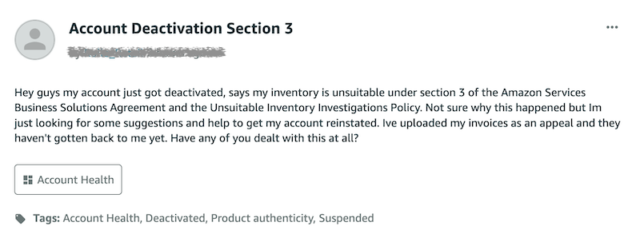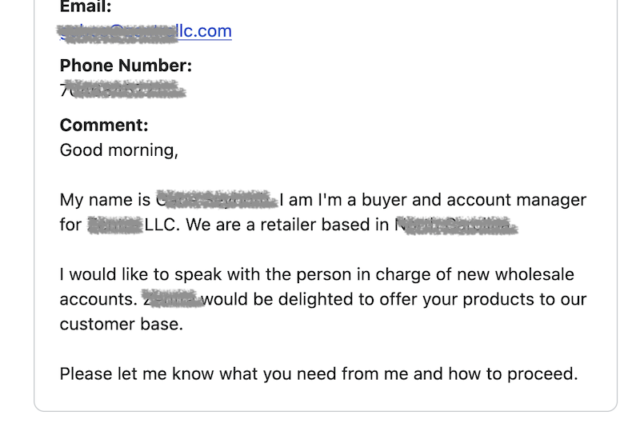I see this a lot on the Amazon Seller Central forum: A new seller shows up, panicked because their Amazon FBA or FBM account was subject to a Section 3 Account Deactivation, and they don’t understand why. Experienced sellers start asking questions about the supply chain. The newbie claims it’s all a big mistake – after all, they are working with an Amazon legit wholesaler – so how can Amazon shut them down?
Here’s a recent example:

It’s really hard to determine whether a wholesaler is “legit.” The anonymous wholesalers, who typically operate through Telegram and Instagram, swear up and down that they are approved by the brands.
Most are not. Often times it’s obsolete, distressed, or grey market inventory no brand wants to see showing up on Amazon.
Worst case: It’s stolen or pirated merchandise. Amazon has worked with prosecutors in many such cases and sellers who get caught up in these schemes have no hope of getting their accounts back.
Amazon: legit wholesalers vs distributors
From my POV, the term Amazon legit wholesaler is a red flag – gated brands often work through approved distributors and there is a clear paper trail showing the brand granting permission for the distributor to resell to retail outlets, often with specific language around Amazon sales.
As a brand owner, I frequently receive offers from potential resellers. Here’s one recent example:

The website of this company never uses the term wholesaler, but rather “reseller” and “distribution partnership.”
Note that the person used a full name, a real email address (NOT gmail) and a phone number. There is a real website, and an LLC that I can look up in a corporations database. If I decided to go ahead, this reseller would almost certainly ask me to grant formal permission for online sales on channels including Amazon on my company letterhead.
When gated brands notice a seller working outside the approved distributor system and notify Amazon, Amazon has no choice but to take action against the sellers who it believes are violating ToS. They won’t care about any claim about “legit wholesalers.” They are deferring to the brand, and the only thing that will convince them to change course is the right documentation showing you are working through a brand-approved supply chain. An invoice from a random online wholesaler won’t cut it.
There’s an easy test to determine whether a wholesaler is legit: Ask for documentation showing brand approval … and hope that it isn’t doctored or some other problem cropping up such as Amazon MAP pricing.
